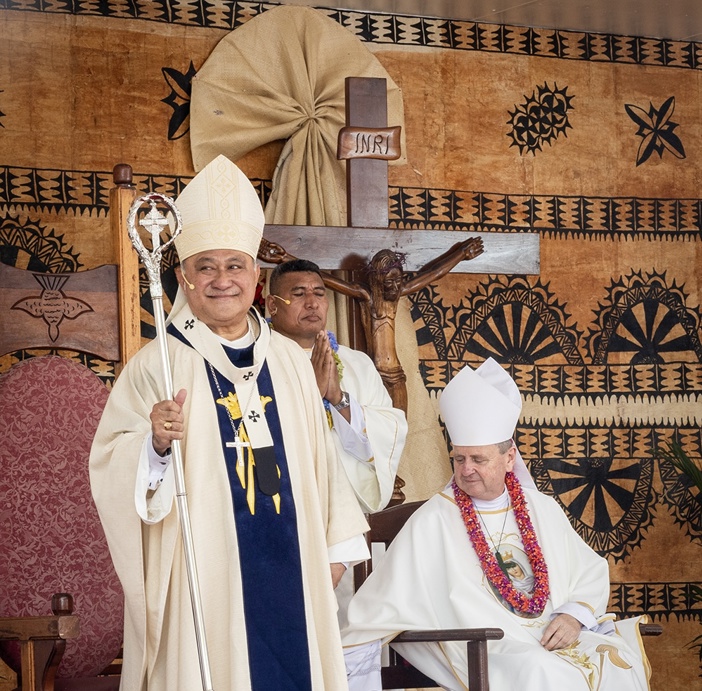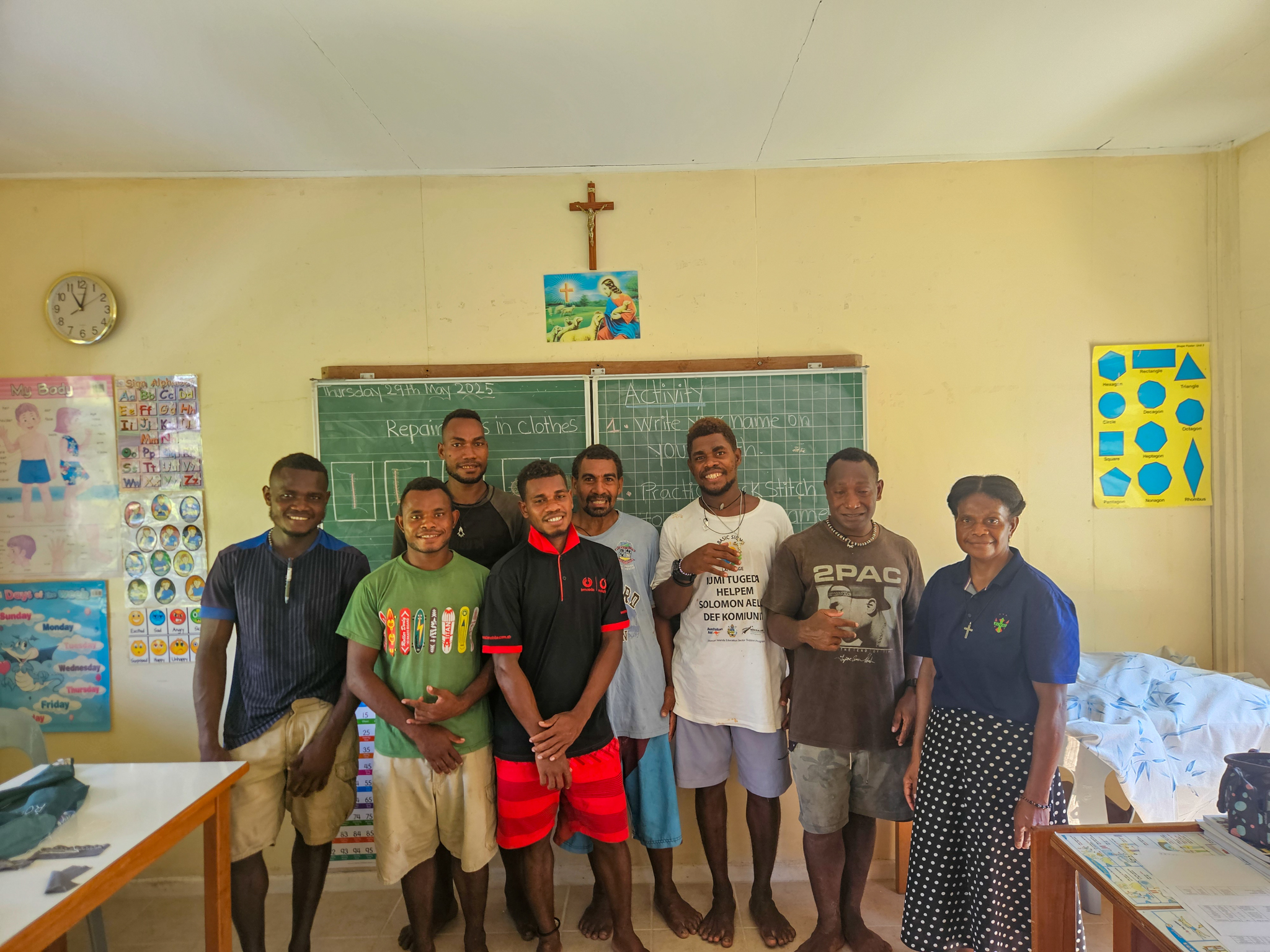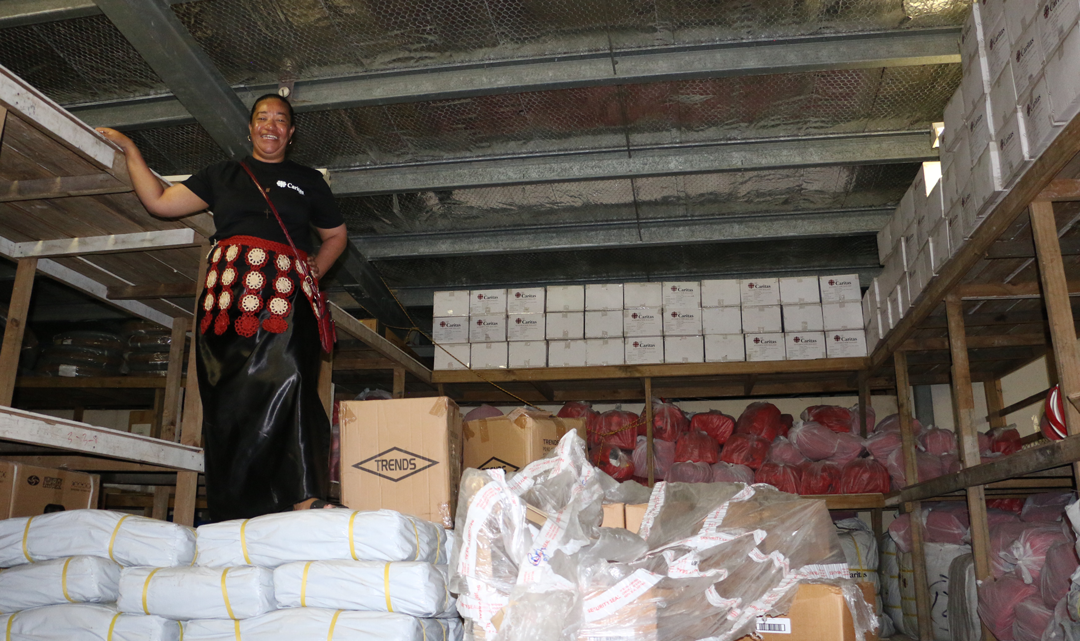My name is Aurora and I work as the Story and Content Producer for Caritas Australia. Through the work that I do, I have had the absolute privilege of being able to collect and share stories around the world with generous supporters like you.
When I arrived in Samoa with my colleague Connie, we were immediately hit by the Pacific nation’s dry heat the second we exited the plane. Our Caritas Samoa partner staff member, Ali’itasi, explained that the country had been facing an abnormal lack of rain yet again.
Aurora and Connie from the content and communication teams visited Samoa last year, to collect information, photos and video for Project Compassion.
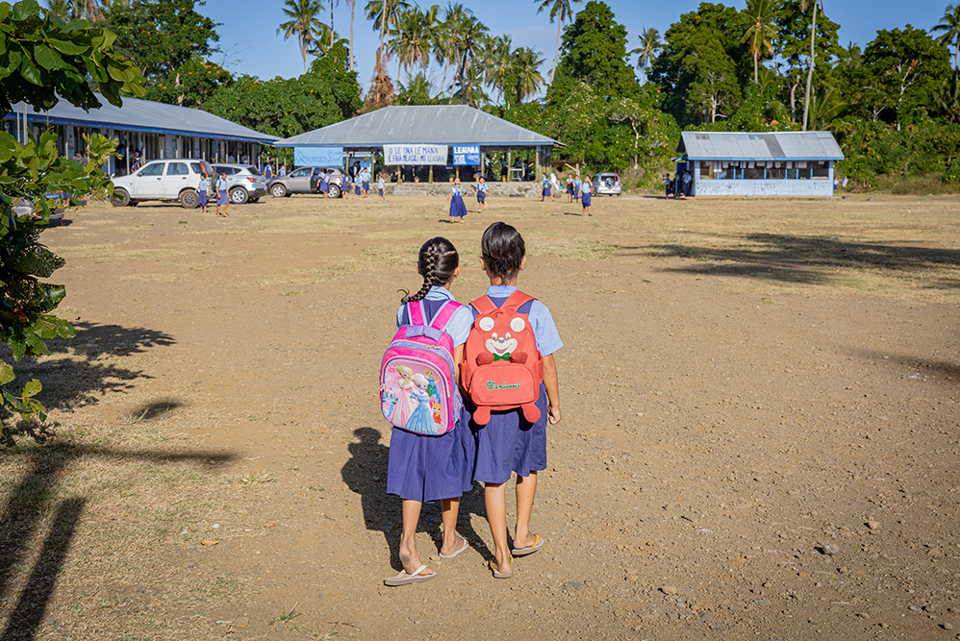
Picture this: you’re in your house and it’s a scorcher of a day. You rush for a glass of cold tap water.
Pause.
This is a moment we’ve all taken for granted. This is not a moment that was guaranteed for Toefuata'iga, or the almost 400 other Samoan school kids I visited last year.
"I’m really worried about climate change because we’ve seen there’s more dry periods than rainy days and it’s been going on for four weeks… Climate has really changed over the years in my opinion because we’ve experienced more dry periods than wet, and it has impacted a lot... I’m very sad to see that happen in our, in my country."
It was as if I was playing a broken record. The year before when I had visited Samoa, I met Leaia and her family, who were also struggling with an atypically long and dry season.
Every country partner and most program participants I have visited in the past few years have told me about the devastating impacts of record droughts and heatwaves, more severe and extreme cyclones, unprecedented flooding, and rising sea levels. Some of our participants might not be familiar with the term “climate change,” but they know what is in front of them.
Extreme weather is no longer unprecedented – it’s inevitable.
It is a tough pill to swallow – visiting countries hit the worst by climate change, then coming home to the privilege of safety, food and water; basic goods and services that an increasing number of people around the world don’t have access to.
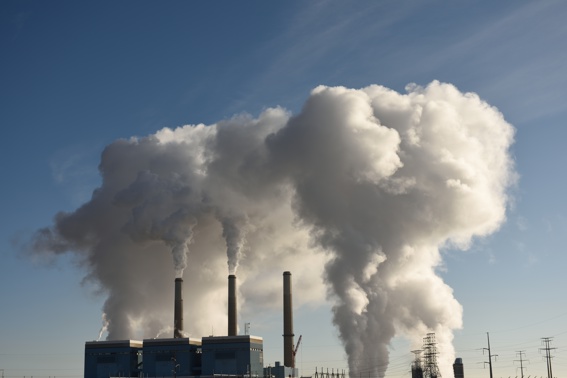
Per capita, we are the 15th highest emitters of carbon dioxide.

Australia is the second largest exporter of coal in the world.
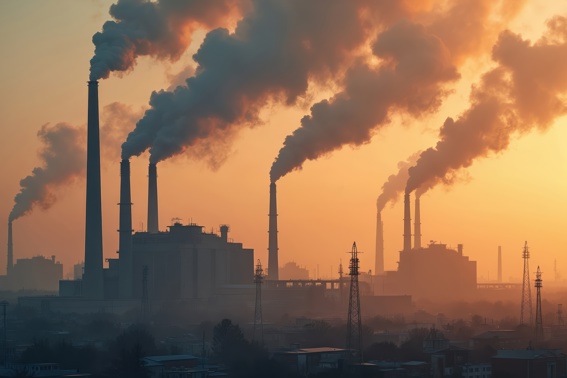
40 percent of the world’s carbon emissions come from fossil fuels.
While you may immediately think of more populous countries like China, the United States, and India, our country undeniably owes a huge debt to those most affected by climate change.
Those on the front lines of climate change and poverty endure the greatest suffering – the thirst, the drought, the floods, the cyclones, the failed crops, the lost land, the shut-down schools.
They bear the burden of excessive consumption in high-income countries like ours. We must stand in solidarity with our Pacific neighbours in the fight against climate change.

Children playing at a school in Samoa where 70 percent of people live in low lying coastal areas vulnerable to rising sea levels. Photo credit: Caritas Australia.
Water, water everywhere nor any drop to drink
Samoa might be a country surrounded by water, but it is facing a drinking water crisis. The Pacific has the lowest rate of basic drinking water, and water sanitation services in the world.
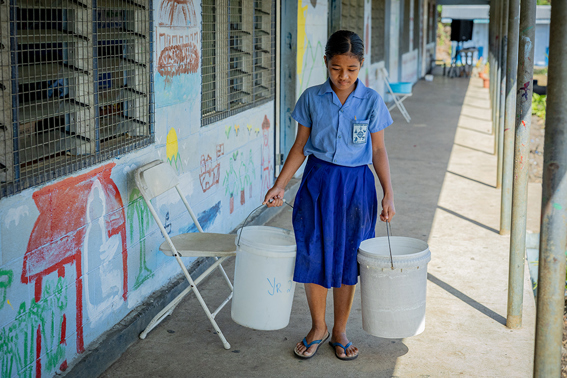
People are being left behind
Piped water infrastructure by the Samoan Water Authority is not keeping pace with population spread and growth across the country.
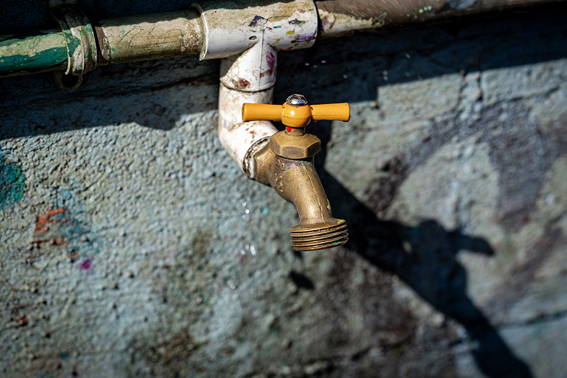
When the tap runs dry, so do school days
Without a water tank, schools hit by drought struggle to stay open, leading to student absences. This impacts learning and academic performance. Samoa's education system is already under significant strain.
Supporting practical solutions
Caritas Samoa’s Water, Sanitation and Hygiene (WASH) Initiative to Strengthen Education and Health (WISEH) program improves water access and sanitation across the country.
Toefuata'iga: A Primary School Girl’s Perspective
Toefuata'iga, a 13-year-old primary school student Connie and I met, faced severe challenges and disruptions to her learning due to water scarcity.
"I feel sad for the lack of water… If there is no tank we don’t come to school."
Watch her story
The school faced frequent early dismissals and missed lessons due to a lack of clean water.
We spoke with Principal Ada, a dedicated community leader, who, alongside fellow teachers, would fetch water from neighbouring homes whenever the local supply was available.

Students stand with water buckets in front of a water tank in a Samoan primary school. Photo: Caritas Australia.
“Me, and the parents and teachers that happen to be at the campus would gather money from our own pockets to support the water shortage on that particular day,” said Principal Ada.
Despite their efforts, water shortages sometimes forced the school to close, adding immense pressure on staff already managing tight resources while striving to keep lessons on track.
The absence of a reliable water source also led to compromised hygiene, increasing the rates of dehydration and waterborne diseases, which affected students' health.
Children are especially vulnerable to the most severe effects of waterborne diseases, including death.
After Caritas Australia’s partner Caritas Samoa installed a 10,000-litre water tank at her school, Toefuata'iga and her classmates saw improved health, consistent attendance, and more opportunities to prioritise education.
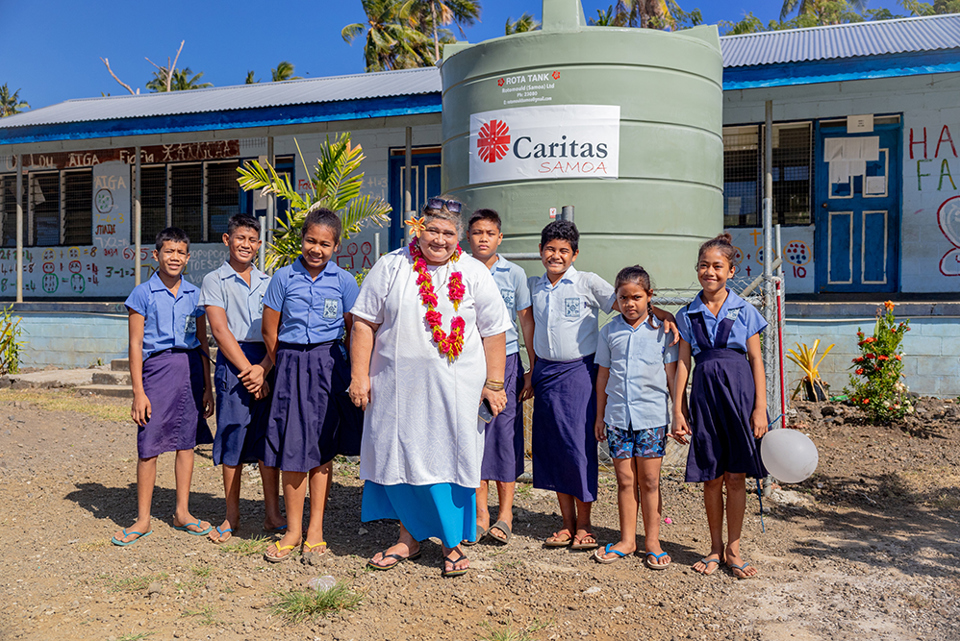
This is my belief: the news bombards us with tragedy, loss and the looming threat of climate disaster. We can either give in to pessimism, turn away, or roll up our sleeves and act.
The latter is exactly what your generosity is doing by providing tangible, effective, locally-led solutions to those most in need.
Let’s be honest – I’m just a city slicker from Australia, but in Samoa, I saw firsthand the impact of your support. The entire school community, dressed in lava lavas and flowers (traditional dress), danced and showered us with thanks – but this gratitude belongs to you.
Because of you, there’s a water tank. Because of you, the school stays open.
Ali’itasi from Caritas Samoa was teary as she thanked supporters like you: “From the bottom of my heart, it wouldn’t be as it is without your help, honestly.”
Ali’itasi thanks Australian Donors
We were also honoured to witness the historic ordination of Archbishop Mosese Tui in Leauva’a, drawing thousands of faithful from Samoa and around the world.
The ceremony blended Catholic spirituality with Samoan traditions, including the royal Ava Fa'atupu, while choirs from local and overseas parishes filled the air with hymns. Dignitaries, including Cardinal Mafi, Pacific bishops, and national leaders, exemplified a deep unity between the Church and the broader community.
Archbishop Tui, the first Samoan Salesian to hold this role, chose the motto "My soul magnifies the Lord," symbolising his deep commitment to faith, service, and Catholic Social Teaching. His mission closely aligns with the Salesian emphasis on youth education, which, interestingly, reminded me of initiatives like Caritas Samoa’s efforts to improve water access in schools.
